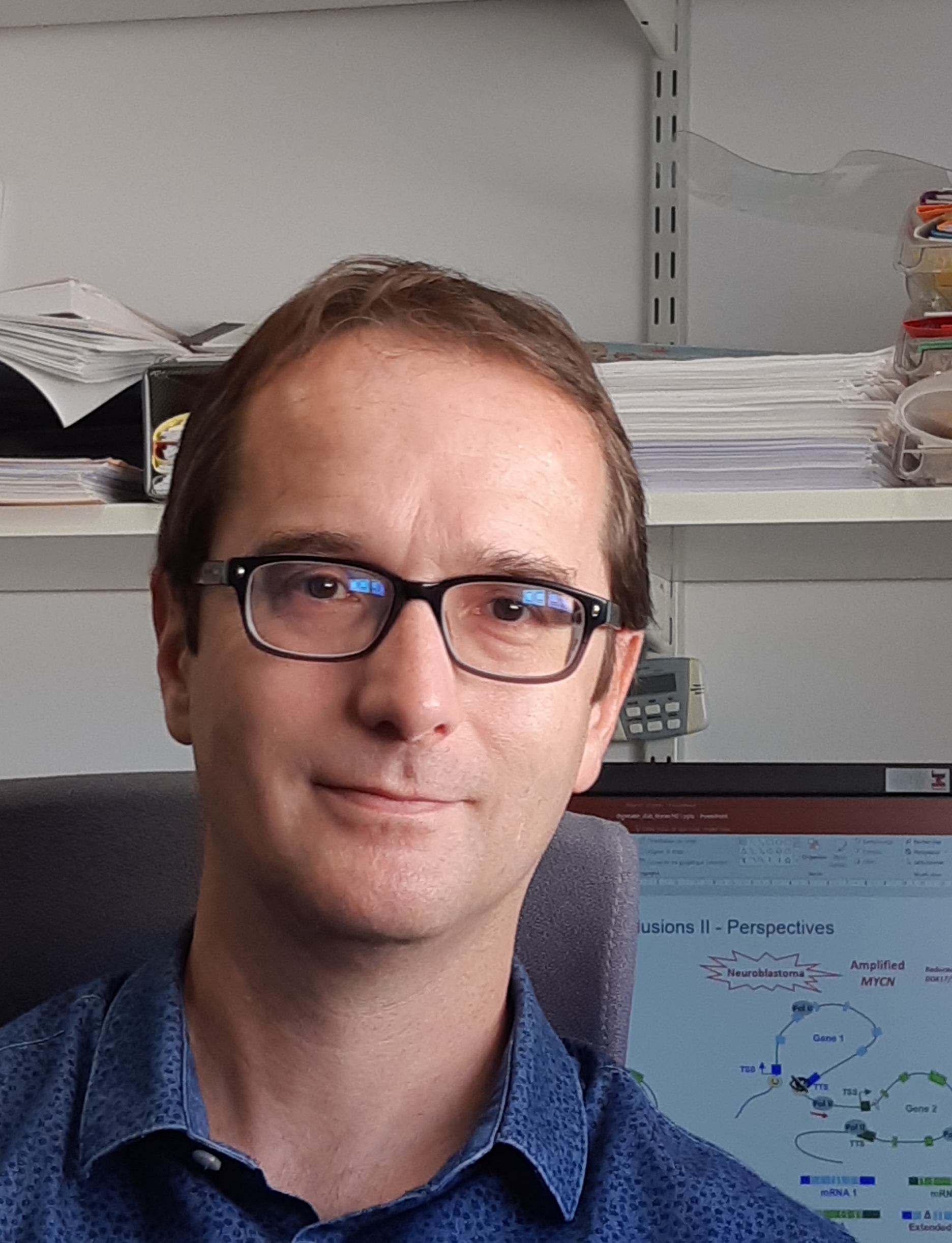CYRIL BOURGEOIS ET NICOLAS JOLY
CYRIL BOURGEOIS :
Cyril Bourgeois has been devoting his career to stuyding the molecular mechanisms of gene expression in higher eukaryotes, with the regulation of alternative splicing as a thread, that he has addressed though approaches ranging from pure biochemistry to large scale studies. During his PhD in the group of James Stévenin at IGBMC (Illkirch/Strasbourg), completed in 1999, he studied the interactions between some splicing regulators and their RNA target sequences, and the impact of these interactions on the control of alternative splicing. He went on to study the mechanisms of transcription elongation controlled by the viral protein Tat in the HIV-1 model during a post-doc in Jonathan Karn's lab (LMB, Cambridge, UK and Case Western Reserve University of Cleveland, USA).
Back to Strasbourg in 2003 following his recruitment by INSERM, he continued his research on splicing factors and also studied splicing deregulation in various pathological situations (genetic diseases or cancer). His work has contributed to the emergence of diagnostic tools allowing to predict the binding of proteins to a given RNA motif, mutated or not, but also to the development of new therapeutic strategies aiming at correcting or altering the splicing of specific targets.
In 2011 he joined the team of Didier Auboeuf at the Cancer Research Center of Lyon, and since 2015 at ENS of Lyon, where he developed new competences in transcriptome analyses. He contributed to the development of new bioinformatic tools to characterize large scale splicing variations and to predict their functional consequences. He is currently leading a small group which is interested in understanding the various functions of two RNA helicases (DDX5 and DDX17) in gene expression. This project has led him to consider gene expression from a more integrated perspective, in a chromatin context that connects RNA processing to the dynamics of transcription and to the spatial folding of genes.
NICOLAS JOLY :
Since the beginning of his career, Nicolas Joly has been interested in the functional and structural study of molecular motors, AAA+ ATPases (ATPases Associated with diverse cellular Activities) that convert chemical energy into mechanical energy. He completed his PhD at the Institut Pasteur Paris, under the supervision of E. Richet in the AP Pugsley’s laboratory where he studied gene regulation allowing the bacteria to use maltose as a carbon source.
From 2005 to the end of 2010, he did a post-doctoral fellowship at Imperial College London in M. Buck's laboratory. He focused on the study of the structure-function relationship of an AAA+ ATPase allowing the bacteria to survive to phage infection. He was then able to reveal and characterize a complex regulation network allowing the coupling of ATP hydrolysis to transcription activation.
In 2011, Nicolas Joly joined the CNRS as a Permanent Researcher, at the Jacques Monod Institute in the team “Nanomanipulation of Biomolecules” led by T. Strick, where he continued to work on bacterial transcriptional regulators using single molecule methods.
Since 2015, he has joined the team “Cell Cycle and Development” led by L. Pintard, also at the Jacques Monod Institute, where he is still working on AAA + ATPases, but this time involved in the cell cycle and in the control of microtubule dynamics. This transition to a new model, the nematode C. elegans, allows him to combine his expertise in biochemistry with the genetics and cell biology in order to answer new questions.




